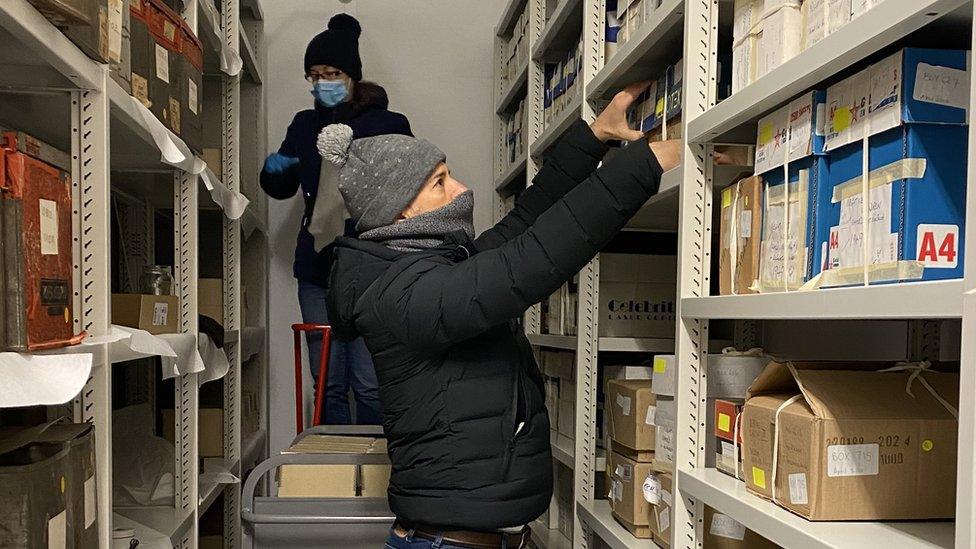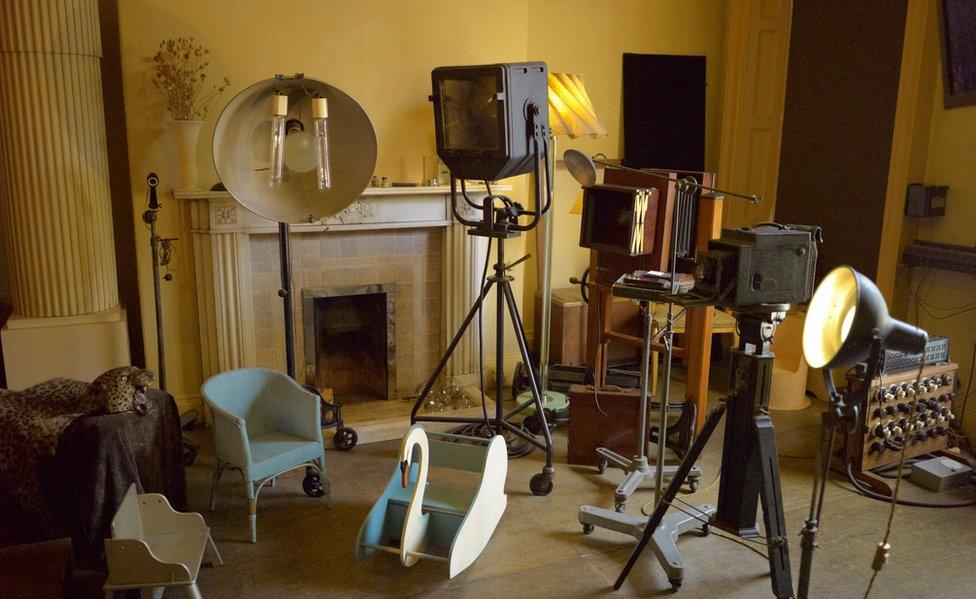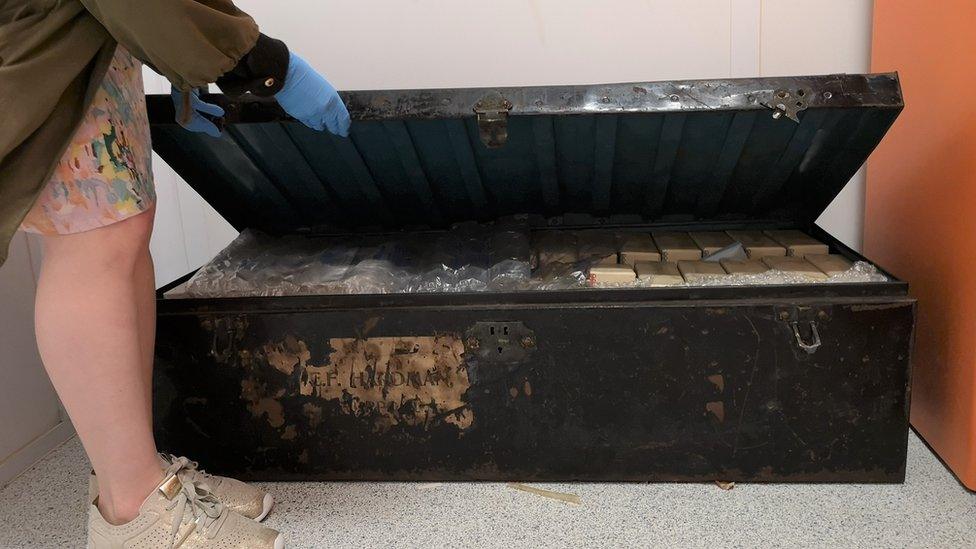National Trust: 'Race against time' to save Chambre Hardman archive
- Published

The charity took possession of the archive when it took up ownership of Hardman's home
The National Trust has said it faces a "race against time" to save an important photographic archive as it starts to deteriorate.
Liverpool photographer Edward Chambre Hardman's collection of 140,000 pictures and negatives passed to the charity, along with his house, in 2003.
Conservation work, already hampered by lockdowns, revealed "serious problems" in the way some items were stored.
Curator Katie Taylor said it was vital that the archive was saved.
"Overall, this collection is arguably the largest of its kind by a photographer in Europe, if not the world, and we're so proud to care for it," she said.
"Hardman's photographs are such an important record of 20th Century life."

Conservator Alex Koukos and archivist Lindsey Sutton's efforts have been hampered by Covid-19
Hardman took portraits of local people and celebrities at his home on Rodney Street in the 1950s and 60s and captured "iconic shots of post-war Liverpool", the charity said.
The two-year project to conserve the archive began in late 2019.
A team had "just begun surveying the collection's condition and prioritising items when the pandemic took over in March 2020", said a spokesman.
When they returned to the house after restrictions eased, conservation work could begin and it was found some of the negatives that were kept in old margarine boxes were showing signs of deterioration.'
Conservator Alex Koukos said: "We needed to act fast to save them".

Hardman welcomed celebrities and locals to his studio on Rodney Street
The team detected a "strong vinegar odour" from the boxes which was a "tell-tale sign" the negatives were starting to decay and emit hazardous gas.
All the at-risk items are now being re-packaged at the Liverpool Records Office to allow any nitrogen dioxide gas to dissipate.
The charity spokesman said they would also use a high tech, low temperature storage facility at Liverpool Central Library "to extend the life of these vulnerable objects".

The deteriorating negatives give off nitrous dioxide, which can be harmful if inhaled

Why not follow BBC North West on Facebook, external, Twitter, external and Instagram, external? You can also send story ideas to northwest.newsonline@bbc.co.uk, external